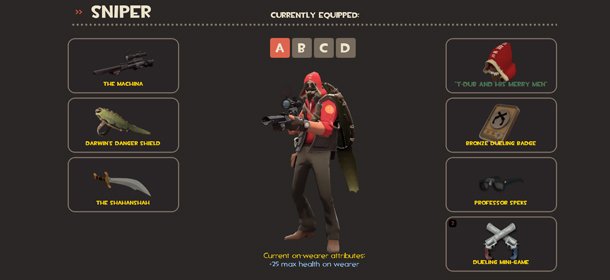Buy low, sell high in Team Fortress 2's "peculiarly sophisticated barter economy"

Yanis Varoufakis, Valve's new economist-in-residence, has posted his first investigation into Team Fortress 2's economy. The hat trade is more fascinating than I anticipated. Varoufakis' educational post explains (in terms non-economists can understand) two notable observations: the existence of an unusually complex barter economy in TF2, and the room for arbitrage -- buying low and selling high -- within it.
Varoufakis explains that barter economies are "cumbersome" because trades require a "double coincidence of wants" -- that is, two parties who each want what the other offers. Because of this, he says, economic complexity breeds currency, and that's why we've never witnessed "truly sophisticated barter economies." In TF2, however, the story is different.
"I was expecting to find that some item or asset would emerge as currency in the context of games such as Team Fortress 2," he writes. "However, a close study of our Team Fortress 2 economy revealed a more complex picture; one in which barter still prevails even though the volume of trading is skyrocketing and the sophistication of the participants' economic behavior is progressing in leaps and bounds."
In his exploration of TF2's "peculiarly sophisticated barter economy," Varoufakis goes on to explain the concept of economic equilibrium, and charts periods of high arbitrage potential. He outlines economics fundamentals clearly and concisely, and I highly recommend reading the whole post . Especially if you strive to have more hats and guns and stuff than everyone else.
Keep up to date with the most important stories and the best deals, as picked by the PC Gamer team.

Tyler grew up in Silicon Valley during the '80s and '90s, playing games like Zork and Arkanoid on early PCs. He was later captivated by Myst, SimCity, Civilization, Command & Conquer, all the shooters they call "boomer shooters" now, and PS1 classic Bushido Blade (that's right: he had Bleem!). Tyler joined PC Gamer in 2011, and today he's focused on the site's news coverage. His hobbies include amateur boxing and adding to his 1,200-plus hours in Rocket League.

